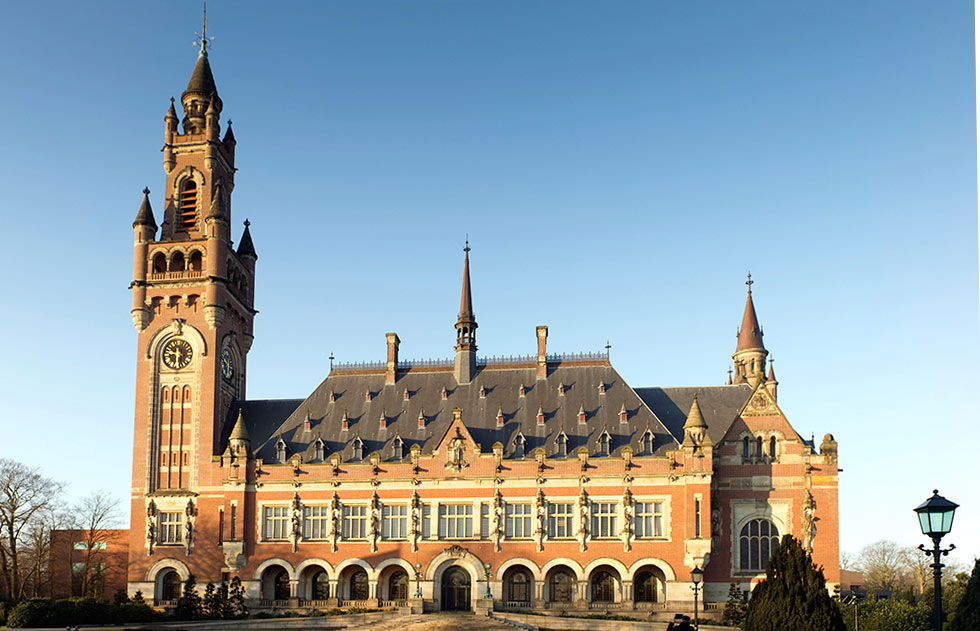Vidushi Vats
In a second day of public hearings at the International Court of Justice (ICJ) in The Hague, Israel firmly rejected accusations of genocide brought forth by South Africa. Israel’s legal representatives labeled South Africa’s case as “unfounded,” “absurd,” and tantamount to “libel,” asserting that Israel’s actions aimed to protect its people rather than destroy a population.
During the initial hearing on Thursday, South Africa argued that Israel had committed “systematic” acts of genocide in Gaza, where more than 23,500 Palestinians have reportedly been killed, with 70 percent being women and children, according to Gaza’s Health Ministry.
Israel’s defense focused on its “right to self-defense” following attacks by Hamas on October 7 and emphasized a lack of evidence supporting “genocidal intent.” Christopher Staker, representing Israel, contended that the inevitable fatalities in any conflict do not establish a pattern indicative of genocidal intent.
Professor Malcolm Shaw, another representative for Israel, underscored that the charge of genocide stands alone as the “epitome of evil” in violations of international law. He argued that the essence of this crime would be lost if the charge of genocide were incorrectly leveled.
Israel maintained that its military actions in Gaza adhered to international law and aimed to minimize civilian harm by providing warnings of impending military actions through phone calls and leafleting.
Galit Raguan, acting director of the international justice division at Israel’s Ministry of Justice, refuted claims that Israel bombed hospitals, arguing that evidence showed Hamas using every hospital in Gaza for military purposes.
The ICJ is expected to rule on nine provisional measures seeking the suspension of military operations in Gaza. However, a specific timeline for the decision has not been stated. Israel argued that provisional measures cannot impede a state’s “plausible right to defend itself.”
Regarding jurisdiction, Israel argued that the ICJ’s mandate requires states to attempt resolution before bringing a case to the court. Israel contended that they had not been in communication with South Africa before the case was filed. South Africa countered, stating they reached out to Israel but received no response.
Tal Becker, the legal adviser of Israel’s foreign ministry, suggested that South Africa’s close relations with Hamas led to a “distorted factual and legal picture.” ICJ President Joan Donoghue concluded the two-day hearing, stating that the court would announce its decision in the coming days.
Find our previous report on the first day of hearing here.

